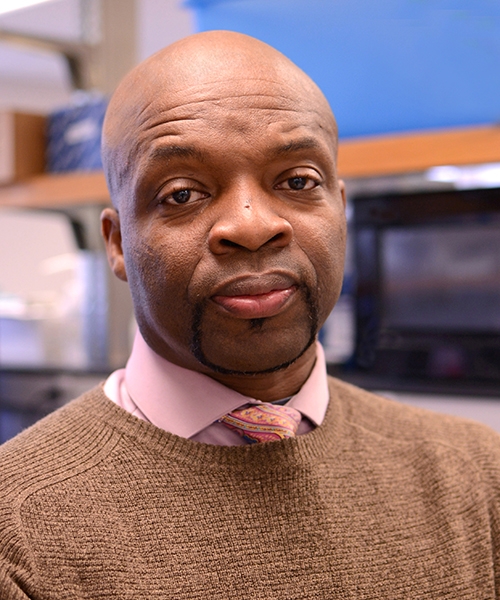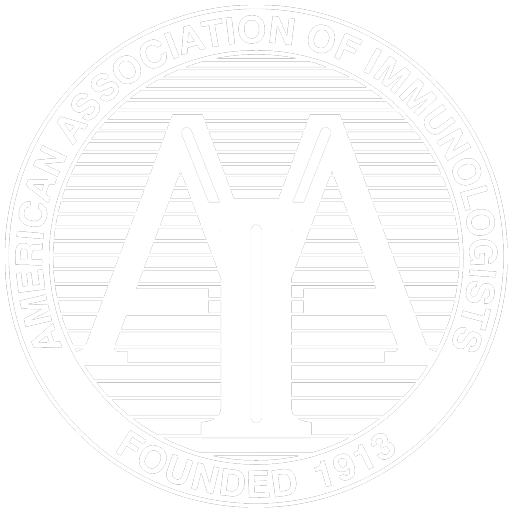Univ. of Pennsylvania Sch. of Vet. Med.

De’Broski R. Herbert (AAI ’00) is an associate professor in the Department of Pathobiology at the University of Pennsylvania School of Veterinary Medicine. Throughout his career, Herbert has explored the cellular and molecular regulatory networks that control host immunity, inflammation, and tissue repair during parasitic helminth infection. He obtained his Ph.D. from Thomas Jefferson Medical College, where his research demonstrated a critical role for IL-5, B‑1 lymphocytes, and eosinophils in host-protective immunity against Strongyloides stercoralis. He spent several years as a postdoctoral fellow at the University of Cape Town in the laboratory of Frank Brombacher, where he performed seminal experiments showing that IL-4/IL-13-driven alternative macrophage activation controls lethal immunopathology during Schistosoma mansoni infection.
During his time as a research instructor, and later as a research assistant professor, in the laboratory of Fred Finkelman at the University of Cincinnati, Herbert extended his studies concerning the importance of the type 2 cytokines IL-4 and IL-13 in driving host protection against parasitic helminths through direct regulation of tissue macrophage function and mucosal epithelia. These studies revealed that arginase I, a major product of IL-4 and IL-13-induced alternatively activated macrophages, restricts tissue damage induced by S. mansoni ova by downregulating production of IL-12 and/or IL-23. Additional work by Herbert in Finkelman’s laboratory showed that IL-4 and IL-13 contribute to the expulsion of Nippostrongylus brasiliensis and Heligmosomoides polygyrus adults from the intestinal lumen by inducing intestinal epithelial cells to differentiate into goblet cells that secrete resistin-like molecule β, which interferes with the ability of the worms to feed off of host tissues during infection.
As principal investigator of his independent laboratory at Cincinnati Children’s Research Foundation, Herbert focused his research efforts on elucidating mechanisms of innate type 2 cytokine regulation by the trefoil factor family (TFF) proteins. His work showed that TFF2, an epithelial cell-derived repair molecule, drives IL-33 production to initiate type 2 immunity against N. brasiliensis and negatively regulates type 1 immunity against Toxoplasma gondii. During this time, Herbert also extended his observations on the role of alternatively activated macrophages during helminth infection and allergic inflammation by demonstrating that TGF-β promotes the normal resolution of intestinal inflammation in part by limiting the production of type 2 cytokines from colonic macrophages.
Herbert moved his lab to the University of California, San Francisco, and continued to investigate mechanisms initiating type 2 immunity. He showed IL-33 regulates IL-5 and IL-13 production and innate lymphoid cell type 2 function during memory type 2 responses.
Since moving to the University of Pennsylvania, Herbert and his laboratory colleagues continue their work on TFF proteins and have identified a family of orphan receptors in the leucine-rich repeat and Nogo-interacting protein family as putative TFF receptors. Recently, Herbert has established collaborations with investigators in Brazil, Nigeria, and New Zealand to collect samples from individuals infected with parasitic worms in an effort to correlate his observations in murine models to human patients.
Herbert is a recipient of the Burroughs Wellcome Investigator in the Pathogenesis of Infectious Diseases Award. An AAI member since 2000, Herbert is currently serving as an abstract programming chair and as a section editor for The Journal of Immunology (The JI). He is a past associate editor for The JI and has also served as a major symposium chair and speaker and Minority Affairs Committee Careers Roundtable discussion leader at the AAI annual meeting.
